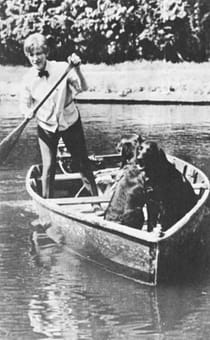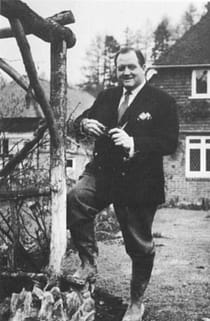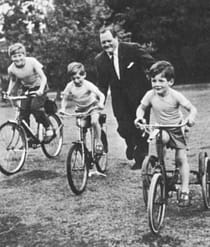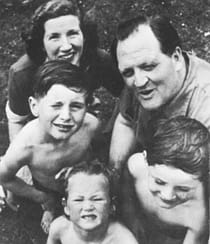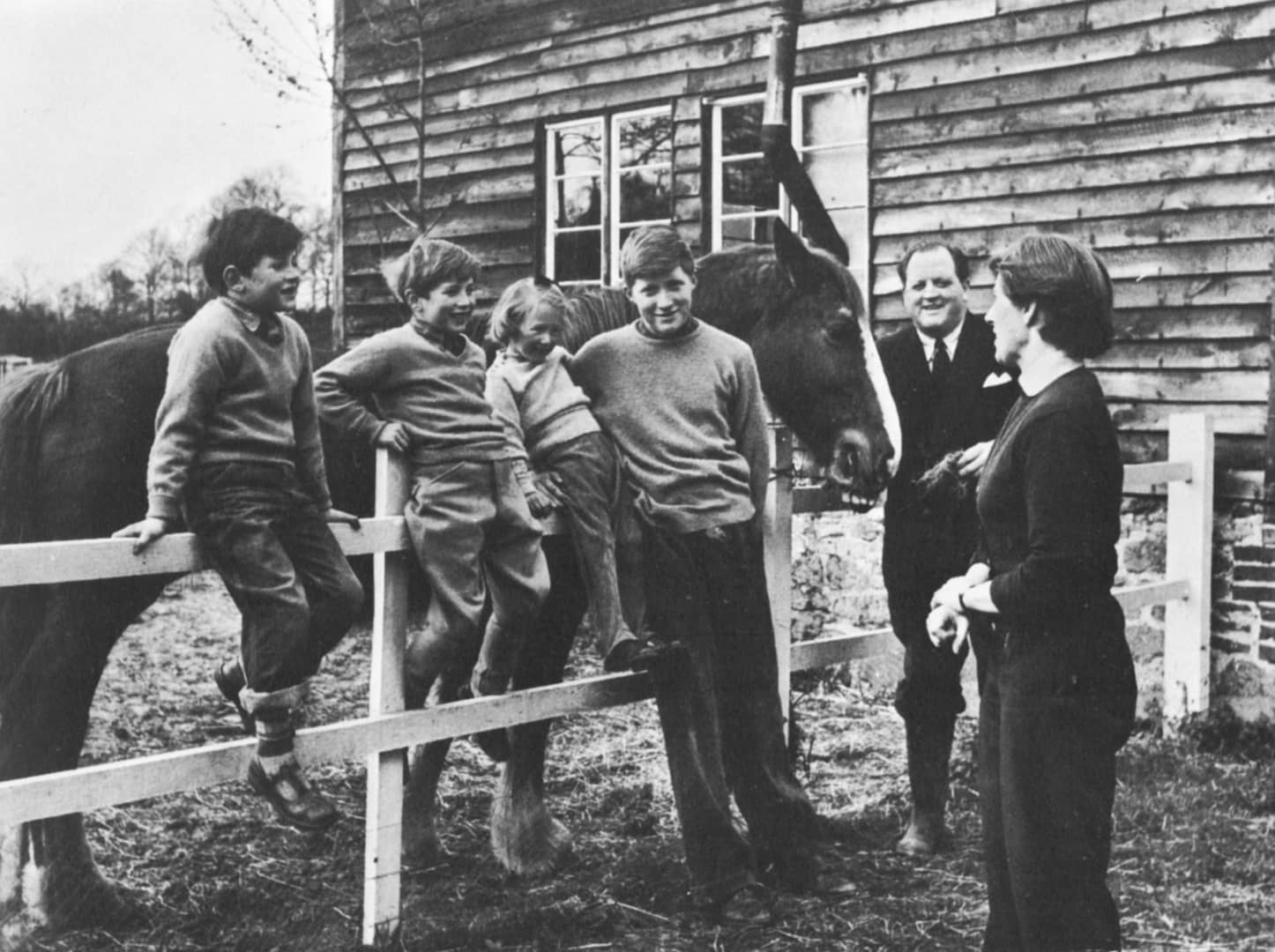When Dimbleby returned from the Middle East in 1942 he unsuccessfully applied to he sent as a war correspondent to Russia. Even in the middle of the war the BBC was already planning its post-war news coverage of foreign affairs. The small pre-war team of news observers, now developed into a great war reporting unit, was to be supplemented by BBC correspondents in the main foreign capitals. The reliance on news agency reports was to be finally broken. An announcement on the BBC’s notice boards invited applications for possible post-war correspondents’ posts. Dimbleby suggested that in addition to the coverage of diplomatic exchanges and international affairs as such there should be two BBC general reporters in Europe, who could fly at a moment’s notice to cover straight news events, much in the way he and Charles Gardner had done in Britain before the war.
He suggested that one should be based in Berlin to cover Northern, Central and Eastern Europe, the other in Switzerland to cover the countries bordering the Mediterranean. He proposed himself for the second post. Unlike 1936, this time his proposal was turned down. The then Foreign News Editor feared that ‘it would cut the ground from under the resident BBC correspondent’s feet if Dimbleby or anyone else were given a roving commission in their territories for descriptive reporting’.
F. J. G. Dimbleby, Richard’s father, had died at the end of 1943, after a long and successful career in journalism. Richard himself was then living with his wife and two children in the little village of Cuddington on the borders of Buckinghamshire and Oxfordshire. His uncle, Percy Dimbleby, who was the Managing Director of ‘The Richmond and Twickenham Times’ and the other newspapers and the printing works, invited Richard to join the Board. The invitation remained open.
When Richard returned from the war he was not wanting further work abroad and did not join those of us who were establishing the first corps of BBC foreign correspondents. He was however hoping for interesting work in the BBC at the microphone. He later revealed, in answer to a question from Daniel Farson in ‘Frankly Speaking’ in 1961, why he resigned from the BBC at the end of the war:
Farson: You had established yourself as a most successful war correspondent. Was it ambition that led you to resign from the BBC?
Dimbleby: No, no. It was the fact that I had to become a director of the family newspapers, coupled with – let me be quite honest – coupled with something else.
The then Controller of Programmes of the BBC sent for me and said, ‘What are you proposing to do, now that the war is over?’ And I said, ‘I don’t quite know’. I had hoped – because I was reasonably well known by then, to put it pretty bluntly – I had hoped they would offer me something which was interesting. He said, ‘Well, I’m afraid we have got nothing to offer you. But we can offer you a place in the pool of home reporters’ – which was twenty-five people who were doing the three-minute pieces all around with everybody. And I just thought to hell with that, and said, ‘No, nothing doing’.
Now simultaneously with this, at the very same time, the family newspaper situation had developed and I had to go and become a director of that.
The BBC had very strong views about people being actual directors of things like newspaper companies while on the permanent staff. So it all fitted together very well. And I was able to say to him: ‘I can’t accept that. I’ll resign,’ knowing that I had the directorship to fall back on when I went out.
I remember pacing along a corridor in Broadcasting House with Richard Dimbleby in the summer of 1945. I had just returned from reporting the immediate post-war situation in Czechoslovakia and was waiting to go out to Washington. Richard was just back from Berlin. He was then earning £1,000 a year and was determined to get £1,100. The administrative people in the News Division had refused to upgrade him as a reporter. If he left the microphone and took an editorial job his ceiling could be raised. Richard was adamant that he was not leaving the microphone, and told me that with the family newspapers behind him he was going to chance his arm as a freelance. For the News Division it was shortsighted parsimony. As a part-time freelance Richard at the microphone was going to earn far more than £1,100 from the BBC every year for the rest of his life.

